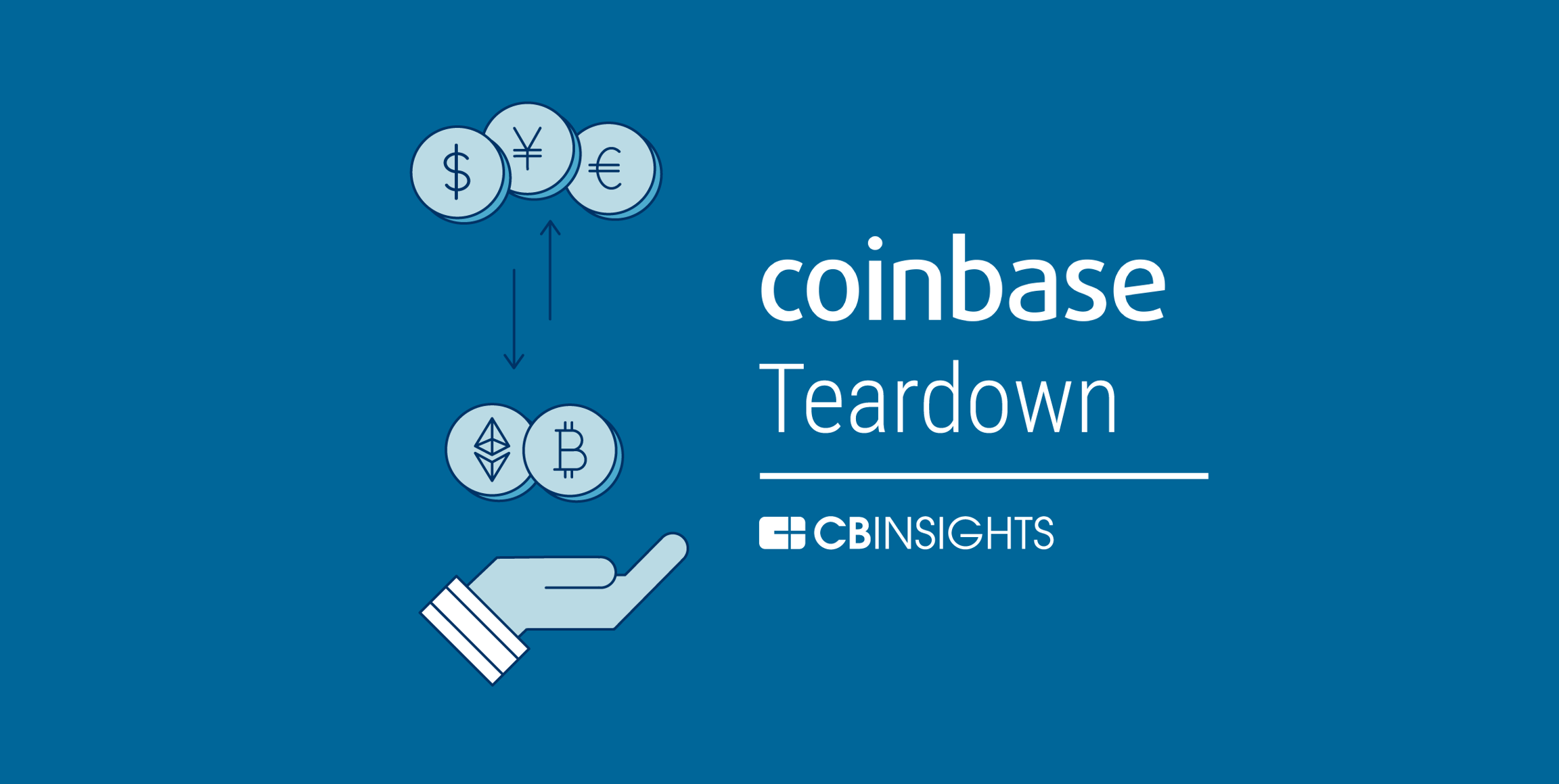Examining the challenges faced by Coinbase and the broader cryptocurrency sector in navigating regulatory obstacles
Blur: NFT | Blur: NFT login | Blur: NFT connect | WalletConnect | Traders | What Is Blur Crypto

Blur: NFT | Blur: NFT login | Blur: NFT connect | WalletConnect | Traders | What Is Blur Crypto
In recent years, the emergence and rapid growth of cryptocurrencies have revolutionized the financial world. As more people become interested in investing and trading digital currencies, companies like Coinbase have emerged as major players in the market. However, along with the increasing popularity of cryptocurrencies, there has also been a surge in regulatory challenges that these companies face.
One of the major hurdles that Coinbase and other cryptocurrency exchanges encounter is the lack of clear regulations and guidelines. Unlike traditional financial institutions, the cryptocurrency industry operates in a relatively unregulated environment. This lack of regulatory certainty often creates confusion and uncertainty for companies like Coinbase, who are looking to comply with existing laws and regulations but struggle to do so due to their ambiguous nature.
Furthermore, the regulatory landscape surrounding cryptocurrencies varies greatly from country to country. Each jurisdiction has its own set of laws and regulations regarding cryptocurrencies, which further complicates the operational landscape for companies like Coinbase. Navigating through this patchwork of regulations requires not only substantial financial and legal resources but also a deep understanding of local regulations and requirements.
Another significant challenge faced by Coinbase is the scrutiny from regulatory bodies. As cryptocurrencies gain more prominence, governments around the world are taking a closer look at the potential risks and implications associated with this new asset class. Regulators are concerned about issues such as money laundering, terrorist financing, and consumer protection. As a result, Coinbase has faced increased scrutiny and has had to implement additional compliance measures to meet the expectations of these regulatory bodies.
Despite these challenges, Coinbase continues to grow and innovate in the cryptocurrency industry. The company has taken steps to improve compliance and strengthen its relationship with regulators, such as partnering with regulatory advisory firms and implementing robust compliance programs. However, the ever-evolving nature of the regulatory landscape means that Coinbase and other players in the industry must remain vigilant and adaptable to stay ahead of the curve.
Overall, the regulatory hurdles faced by Coinbase and the wider cryptocurrency industry are complex and constantly evolving. As governments and regulatory bodies grapple with how to approach this new technology, companies like Coinbase are pioneering the way and helping to shape the future of finance. With continued collaboration and dialogue between regulators and industry leaders, it is hopeful that a more transparent and balanced regulatory framework can be established, allowing the full potential of cryptocurrencies to be realized.
The Role of Government Regulations in the Cryptocurrency Industry
The cryptocurrency industry has experienced significant growth and innovation in recent years. As cryptocurrencies like Bitcoin and Ethereum gain popularity, governments around the world have taken notice and started implementing regulations to govern the industry.
Government regulations play a crucial role in shaping the cryptocurrency industry. They help establish a framework for operating within the industry and provide a level of confidence and security for users and investors. These regulations aim to address concerns such as money laundering, fraud, and investor protection.
Regulatory Hurdles Faced by Coinbase and the Cryptocurrency Industry
One of the leading cryptocurrency exchanges, Coinbase, has encountered numerous regulatory hurdles in its operations. Governments have scrutinized Coinbase's compliance with anti-money laundering (AML) and know-your-customer (KYC) regulations, as well as its handling of user data and tax reporting requirements.
The regulatory environment Coinbase operates in continues to evolve and presents ongoing challenges for the company. Ensuring compliance with various national and international regulations can be a complex and time-consuming process.
The Importance of Regulatory Clarity and Consistency
For the wider cryptocurrency industry, regulatory clarity and consistency are essential for growth and stability. Clear regulations provide guidelines for businesses to operate within, enabling them to innovate and attract investment. Consistent regulations across different jurisdictions also help avoid confusion and ensure a level playing field.
However, achieving regulatory clarity and consistency in the cryptocurrency industry is no easy task. Different countries have varied approaches to cryptocurrency regulation, with some embracing the technology while others imposing strict limitations. This fragmented regulatory landscape presents challenges for companies operating globally.
Regulatory frameworks should strike a balance between enabling innovation and protecting users and investors. Striking the right balance requires continuous dialogue between governments, regulators, industry players, and other stakeholders.
The evolving nature of cryptocurrencies poses a challenge for regulators. As new technologies and use cases emerge, regulations need to adapt to address potential risks while fostering innovation.
International collaboration is essential in creating consistent regulations for the cryptocurrency industry. Cooperative efforts can help establish global standards that facilitate cross-border transactions and create a more efficient regulatory environment.
In conclusion, government regulations play a pivotal role in the cryptocurrency industry. They provide crucial guidelines for businesses and users, addressing concerns and creating a secure environment. Achieving regulatory clarity and consistency is a challenge, but it is vital for the industry's growth and stability. Collaboration between stakeholders and international cooperation are key in shaping effective regulatory frameworks for the future.
The Impact of Regulatory Frameworks on Coinbase and Other Cryptocurrency Exchanges
The cryptocurrency industry, particularly companies like Coinbase, has been operating in a constantly evolving and often challenging regulatory environment. The impact of regulatory frameworks on these exchanges is significant and multifaceted, influencing various aspects of their operations.
One of the key challenges faced by Coinbase and other cryptocurrency exchanges is the lack of clear and consistent regulations across different jurisdictions. As a global platform, Coinbase operates in multiple countries with distinct regulatory frameworks, creating a complex landscape to navigate. This lack of harmonization not only poses compliance issues but also hampers innovation and inhibits the growth potential of the industry as a whole.
Additionally, regulatory frameworks play a crucial role in determining the level of consumer protection offered by cryptocurrency exchanges. These regulations often require exchanges to implement stringent security measures, such as robust Know Your Customer (KYC) and Anti-Money Laundering (AML) protocols. While such measures are crucial for preventing fraud and illicit activities, they also increase the operational costs for exchanges and can potentially limit user privacy.
The regulatory burden also extends to the licensing and registration requirements imposed on cryptocurrency exchanges. Obtaining the necessary licenses and registrations can be a complex and time-consuming process, often involving extensive documentation and compliance audits. This can pose a barrier to entry for new exchanges and startups, limiting competition and potentially stifling innovation in the industry.
The constantly changing regulatory landscape also requires exchanges to adapt and adjust their operations accordingly. Compliance with new regulations often requires significant investment in resources and technologies to ensure adherence, which can be a costly burden for smaller exchanges. Furthermore, the lack of regulatory clarity and the potential for sudden regulatory changes create uncertainty and risk in the industry, affecting business strategies and investor confidence.
In summary, the impact of regulatory frameworks on Coinbase and other cryptocurrency exchanges is profound. The lack of harmonization, consumer protection requirements, licensing and registration obligations, and the need for continual adaptation all pose significant challenges for these platforms. As the industry continues to grow and evolve, it is vital for regulators to strike a balance between protecting users and fostering innovation in order to promote the development of a thriving and secure cryptocurrency ecosystem.
For more information on the cryptocurrency ecosystem and its impact on the global financial landscape, visit What Is Blur Crypto.
The Challenge of Money Laundering and KYC Requirements
The rise of cryptocurrencies has brought with it new challenges in terms of money laundering and the need for Know Your Customer (KYC) requirements.
Money laundering is the process of making illegally-gained proceeds appear legal, typically by passing them through a complex sequence of banking transfers or commercial transactions. The decentralized nature of cryptocurrencies presents a unique challenge in tracking and preventing money laundering activities.
Cryptocurrency exchanges, such as Coinbase, have a responsibility to ensure their platforms are not used for illegal activities, including money laundering. To meet this requirement, they implement strict KYC procedures.
KYC requirements involve verifying the identity of users and collecting relevant information to ensure they are not engaged in illegal activities. This includes collecting personal information, such as government-issued identification, proof of address, and in some cases, additional documents for further verification.
By implementing robust KYC procedures, exchanges like Coinbase can mitigate the risk of facilitating money laundering. These procedures also help to build trust within the industry and maintain compliance with regulatory requirements.
KYC requirements place an additional burden on cryptocurrency exchanges, as they must allocate resources for identity verification and monitoring activities. This can increase operational costs and potentially slow down the onboarding process for new users.
On the other hand, KYC requirements provide a layer of protection for customers and the industry as a whole. By verifying the identity of users and monitoring transactions, exchanges can detect and report suspicious activities, ultimately making it harder for criminals to use cryptocurrencies for illegal purposes.
It is important for cryptocurrency exchanges to strike a balance between complying with KYC requirements and providing a seamless user experience. This involves implementing efficient verification processes and utilizing advanced technologies, such as artificial intelligence, to streamline the process while maintaining compliance.
Overall, the challenge of money laundering and KYC requirements is an ongoing concern for the cryptocurrency industry. Through collaboration with regulators, implementation of robust verification processes, and the use of advanced technologies, exchanges like Coinbase can continue to navigate these challenges and contribute to a safer and more regulated cryptocurrency ecosystem.
Securities Exchange Commission (SEC) Regulations and Cryptocurrency Offerings
The Securities Exchange Commission (SEC) plays a crucial role in regulating the sale and offering of securities, including cryptocurrency offerings. As the cryptocurrency industry continues to grow, the SEC has been striving to implement regulations that ensure investor protection and market integrity.
One of the main challenges faced by cryptocurrency exchanges like Coinbase is complying with the SEC regulations when it comes to cryptocurrency offerings. The SEC has categorized some cryptocurrencies as securities, which means that they must comply with the relevant securities laws.
When a cryptocurrency offering is categorized as a security, it becomes subject to the registration requirements of the Securities Act of 1933. This means that the offering must go through a rigorous process of filing registration statements and providing disclosure documents to the SEC. The registration process can be time-consuming and costly, which poses challenges for companies operating in the cryptocurrency industry.
Additionally, the SEC also regulates the activities of cryptocurrency exchanges and platforms that facilitate the trading of digital assets. These exchanges must adhere to certain guidelines to ensure fair trading practices and prevent market manipulation.
The SEC regulations regarding cryptocurrency offerings have been a topic of debate and discussion within the cryptocurrency community. While some argue that these regulations hinder innovation and growth in the industry, others believe that they are necessary to protect investors and maintain market stability.
Overall, the SEC regulations play a significant role in shaping the regulatory landscape of the cryptocurrency industry. Companies like Coinbase must navigate these regulations to ensure compliance and build trust with investors and regulators alike.
For more information on cryptocurrency regulations and compliance, you can visit the BLUR.IO website.
The Dilemma of Decentralization and Regulatory Oversight

One of the fundamental principles of cryptocurrencies is the idea of decentralization. Bitcoin, the first and most well-known cryptocurrency, was designed to operate without the need for a central authority or regulatory oversight. This decentralized nature is one of the key factors that makes cryptocurrencies attractive to many people.
However, the rise of cryptocurrencies has also raised concerns about the potential for abuse and illegal activities. Without proper regulation and oversight, it is feared that cryptocurrencies could be used for money laundering, tax evasion, and other criminal activities.
The Need for Regulatory Oversight
To address these concerns, many countries and regulatory bodies have started to develop frameworks and guidelines for cryptocurrency exchanges and other crypto-related businesses. The goal is to strike a balance between allowing innovation and development in the industry while also mitigating the risks associated with cryptocurrencies.
Regulation is seen as a way to protect consumers and investors from fraud and scams, as well as to ensure the stability and integrity of the financial system. It also provides a level of certainty and legitimacy to the industry, making it more attractive to traditional investors and financial institutions.
The Challenges of Regulation in a Decentralized System

However, regulating the cryptocurrency industry is no easy task. The decentralized nature of cryptocurrencies makes it difficult to apply traditional regulatory frameworks and oversight. Unlike traditional financial institutions, there is no central authority or entity that can be held responsible for the actions of cryptocurrency exchanges or individuals.
Another challenge is the global nature of the cryptocurrency industry. Cryptocurrencies operate on a global scale, and regulations developed in one country may not be applicable or enforceable in another. This lack of harmonization and coordination between different jurisdictions can lead to regulatory arbitrage and unintended consequences.
Moreover, the rapid pace of technological innovation in the cryptocurrency space makes it difficult for regulators to keep up. New cryptocurrencies, protocols, and decentralized applications are constantly being developed, raising questions about how existing regulations can be applied and whether new regulations are needed.
Ultimately, striking the right balance between decentralization and regulatory oversight is a complex and ongoing challenge. It requires collaboration between regulators, industry participants, and other stakeholders to develop effective and flexible regulatory frameworks that can adapt to the evolving nature of cryptocurrencies.
In conclusion, the dilemma of decentralization and regulatory oversight in the cryptocurrency industry highlights the need for thoughtful and innovative approaches to strike a balance between the benefits of decentralization and the risks associated with cryptocurrencies. This ongoing challenge will shape the future of the industry and determine its level of acceptance and integration into the mainstream financial system.
The Need for Clear Taxation Policies for Cryptocurrency Transactions
The rise of cryptocurrency has posed significant challenges for governments and regulatory bodies around the world, particularly when it comes to taxation policies for cryptocurrency transactions. The decentralized nature of cryptocurrencies and the anonymous nature of some transactions make it difficult for tax authorities to effectively track and tax these transactions.
One of the biggest challenges is determining how to classify cryptocurrencies for tax purposes. Are they considered currencies, commodities, or securities? The lack of clear guidelines has resulted in confusion and inconsistencies in how cryptocurrencies are taxed. This ambiguity has created a gray area that can be exploited by individuals and businesses aiming to evade taxes.
Another issue is the difficulty in tracking cryptocurrency transactions. Traditional banks and financial institutions are required to report transactions to tax authorities, but cryptocurrency exchanges and wallets are not subject to the same regulations. This makes it harder for tax authorities to identify individuals and businesses involved in cryptocurrency transactions and ensure they are adhering to tax laws.
Additionally, the volatility and value fluctuations of cryptocurrencies add another layer of complexity to taxation. Unlike traditional assets, cryptocurrencies can experience significant price swings within short periods of time. Tax authorities need to address how to account for these price changes when calculating capital gains or losses for tax purposes.
Furthermore, cross-border transactions with cryptocurrencies present unique challenges for taxation. The global nature of cryptocurrencies allows individuals and businesses to make transactions across borders without going through traditional banking systems. This can make it even harder for tax authorities to track and tax these transactions, particularly if different jurisdictions have varying tax regulations for cryptocurrencies.
To address these challenges, clear and comprehensive taxation policies specifically designed for cryptocurrencies need to be developed. Governments and regulatory bodies must work together to establish guidelines for classifying and taxing cryptocurrencies. This includes determining the appropriate tax rate, defining reporting requirements for cryptocurrency exchanges and wallets, and addressing the treatment of capital gains and losses.
Education and awareness initiatives are also crucial to ensure individuals and businesses understand their tax obligations when it comes to cryptocurrencies. This can help promote compliance and discourage tax evasion within the cryptocurrency industry.
Overall, the need for clear taxation policies for cryptocurrency transactions is essential for the long-term sustainability and legitimacy of the industry. By establishing clear guidelines and addressing the specific challenges posed by cryptocurrencies, governments can better regulate the industry and ensure fair and consistent taxation practices.
International Regulations and the Global Nature of the Cryptocurrency Industry

The cryptocurrency industry operates on a global scale, with transactions taking place across borders and involving multiple jurisdictions. As a result, there is a need for international regulations to govern this rapidly evolving and complex industry.
One of the main challenges faced by cryptocurrency exchanges, like Coinbase, is navigating the differing regulatory frameworks in different countries. Each jurisdiction has its own set of rules and requirements for operating a cryptocurrency exchange, which can often be conflicting and difficult to navigate.
The Fragmented Regulatory Landscape
The lack of a cohesive regulatory framework for cryptocurrencies has led to a fragmented regulatory landscape. Some countries, like Japan and Switzerland, have embraced cryptocurrencies and have established clear regulations to foster innovation and protect consumers. On the other hand, countries like China and India have taken a more cautious approach, imposing strict regulations and even imposing bans on cryptocurrency trading.
This fragmented regulatory landscape poses challenges for companies like Coinbase, as they have to comply with multiple sets of regulations and ensure that they are not violating any laws in the countries they operate in. This often requires significant resources and expertise to navigate the legal and regulatory complexities.
The Importance of International Cooperation

Given the global nature of the cryptocurrency industry, international cooperation is crucial for the development of appropriate regulations. Collaboration among governments, regulators, and industry players can help create a more cohesive and harmonized regulatory framework.
Efforts are being made to establish international standards and guidelines for the cryptocurrency industry. For example, the Financial Action Task Force (FATF) has published guidelines on combating money laundering and terrorist financing in the cryptocurrency sector. These guidelines aim to promote transparency, enhance due diligence, and prevent illicit activities.
However, achieving global consensus on regulations is a complex task, as countries have different priorities and approaches towards cryptocurrencies. This creates challenges for companies like Coinbase, which have to constantly adapt to evolving regulations in different jurisdictions.
The Future of Cryptocurrency Regulations
As the cryptocurrency industry continues to grow and mature, it is likely that we will see more comprehensive regulations being implemented at the national and international levels. These regulations will be aimed at addressing concerns such as investor protection, market integrity, and financial stability.
While regulations may impose additional burdens on cryptocurrency exchanges and other industry players, they can also provide a much-needed sense of legitimacy and stability to the industry. Clear rules and guidelines can help build trust among consumers and attract institutional investors.
The regulatory challenges faced by Coinbase and the wider cryptocurrency industry are complex and ever-changing. However, with increased international cooperation and the establishment of clear regulations, the industry can continue to thrive and innovate in a responsible and sustainable manner.
The Role of Financial Action Task Force (FATF) in Cryptocurrency Regulation
The Financial Action Task Force (FATF) is an intergovernmental organization that aims to combat money laundering, terrorist financing, and other threats to the integrity of the global financial system. Established in 1989, the FATF sets international standards and promotes effective implementation of legal, regulatory, and operational measures to fight against financial crimes.
Regulating Cryptocurrency
The emergence of cryptocurrencies has posed new challenges for regulators around the world. Due to their decentralized nature and potential for anonymity, cryptocurrencies can be used for illicit activities such as money laundering and terrorism financing. Recognizing this, the FATF has taken a proactive role in regulating the cryptocurrency industry.
The FATF's Recommendations
In 2019, the FATF issued updated recommendations to address the money laundering and terrorist financing risks associated with cryptocurrencies. These recommendations are not legally binding, but they are highly influential, as the FATF membership includes 38 countries and jurisdictions, as well as international organizations.
The key recommendations for cryptocurrency regulation include:
Identification and verification of cryptocurrency users: Crypto service providers, such as exchanges, are required to implement know-your-customer (KYC) procedures to identify and verify the identities of their customers.
Record keeping: Crypto service providers should maintain accurate and up-to-date records of cryptocurrency transactions.
Suspicious transaction reporting: If a crypto service provider detects any suspicious transactions, they are obligated to report them to the relevant authorities.
Licensing and registration: Crypto service providers must be licensed or registered with the appropriate regulatory authorities.
Additionally, the FATF recommends that countries establish a regulatory framework for virtual asset service providers (VASPs) and implement effective measures to prevent money laundering and terrorism financing through cryptocurrencies.
The Impact on Coinbase and the Cryptocurrency Industry
As one of the largest cryptocurrency exchanges, Coinbase is subject to the regulatory requirements set by the FATF and other relevant authorities. The company has implemented robust KYC procedures, record keeping, and reporting mechanisms to comply with the FATF's recommendations and ensure the integrity of its platform.
While regulatory compliance can be challenging for cryptocurrency businesses, it is crucial for the long-term viability and legitimacy of the industry. By adhering to the FATF's recommendations and working closely with regulators, Coinbase and other crypto service providers can contribute to a safer and more transparent cryptocurrency ecosystem.
Overall, the FATF plays a significant role in shaping the regulatory landscape for cryptocurrencies. Its recommendations provide guidance for countries and jurisdictions worldwide, helping to mitigate the risks associated with digital assets and ensure the integrity of the global financial system.
Cryptocurrency Regulations in Different Countries: A Comparative Analysis
The regulation of cryptocurrency varies significantly from one country to another, as governments around the world struggle to catch up with the rapidly evolving digital currency industry. In this article, we will provide a comparative analysis of cryptocurrency regulations in different countries.
1. United States
The United States has taken a relatively proactive approach to regulating cryptocurrency. The Financial Crimes Enforcement Network (FinCEN) requires cryptocurrency exchanges to register as Money Services Businesses (MSBs) and comply with anti-money laundering (AML) and Know Your Customer (KYC) regulations. Additionally, the Securities and Exchange Commission (SEC) has classified certain cryptocurrencies as securities, subjecting them to additional regulations.
2. Japan

Japan has emerged as a leader in cryptocurrency regulation, recognizing Bitcoin as legal tender in 2017. The country implemented a licensing system for cryptocurrency exchanges and introduced consumer protection measures, such as mandatory registration and regular audits. However, exchanges must still comply with AML and KYC regulations.
3. South Korea

South Korea has taken a more cautious approach to cryptocurrency regulation. The country has banned initial coin offerings (ICOs) and tightened regulations on cryptocurrency exchanges. Exchanges must now implement strict AML and KYC procedures, and are subject to regular government inspections.
4. China
China has imposed strict regulations on cryptocurrency, including banning domestic cryptocurrency exchanges and ICOs. However, the country has not completely banned cryptocurrency and still allows individuals to hold and trade cryptocurrencies on foreign exchanges.
5. European Union
The European Union (EU) has a fragmented approach to cryptocurrency regulation, with each member state implementing its own regulations. However, the EU has introduced the Fifth Anti-Money Laundering Directive (AMLD5), which brings cryptocurrency exchanges and custodian wallet providers under AML and KYC obligations.
6. Switzerland
Switzerland has adopted a more cryptocurrency-friendly approach, becoming a global hub for blockchain and cryptocurrency startups. The country has implemented a regulatory framework that balances innovation with consumer protection, offering clear guidelines for companies operating in the cryptocurrency industry.
While these examples provide a snapshot of cryptocurrency regulations in different countries, it is important to note that the regulatory landscape is constantly evolving. As the cryptocurrency industry continues to grow and mature, governments around the world will continue to adapt their regulations to address the unique challenges and opportunities presented by digital currencies.
The Importance of Consumer Protection Regulations in the Cryptocurrency Market
The cryptocurrency market has rapidly gained popularity in recent years, with more and more people investing in digital currencies like Bitcoin and Ethereum. However, with the growing interest in this emerging market, there are also increasing concerns about consumer protection.
1. Volatility and Lack of Oversight
One of the main challenges in the cryptocurrency market is its high volatility. Prices of digital assets can fluctuate dramatically within a short period, which exposes investors to significant risks. Moreover, the lack of regulatory oversight creates opportunities for fraud and market manipulation, putting consumers at even higher risk.
2. Safeguarding Consumers

To address these challenges, consumer protection regulations play a crucial role in the cryptocurrency market. These regulations aim to protect investors from fraudulent activities, ensure fair and transparent market practices, and establish a level playing field for all participants.
Consumer protection regulations can include:
2. Anti-Money Laundering (AML) Regulations
These regulations aim to prevent the use of cryptocurrencies for illegal activities, such as money laundering and terrorist financing, by imposing stricter reporting requirements on cryptocurrency service providers.
3. Security Standards
Regulations may also require cryptocurrency exchanges to implement robust security measures to protect users' funds and personal information from unauthorized access.
4. Investor Education
Consumer protection regulations can promote investor education to ensure that individuals have a clear understanding of the risks and benefits of investing in cryptocurrencies.
3. Benefits for the Industry
While some individuals in the cryptocurrency community may view regulations as a hindrance to innovation and decentralization, proper consumer protection regulations can bring several benefits to the industry as a whole.
Firstly, regulations can enhance trust and credibility in the market, attracting more investors and increasing mainstream adoption of cryptocurrencies. This increase in trust can lead to a more stable and sustainable cryptocurrency ecosystem.
Secondly, regulations can help weed out fraudulent actors and bad actors from the market, fostering a safer environment for investors. This can help prevent reputational damage to the industry and reduce the likelihood of regulatory crackdowns.
In conclusion, consumer protection regulations are essential for ensuring the integrity and stability of the cryptocurrency market. By safeguarding investors and promoting fair practices, these regulations can contribute to the long-term success and growth of the industry.
The Relationship Between Cryptocurrency Industry and Traditional Banking Institutions
The emergence of the cryptocurrency industry has brought about significant changes in the financial landscape, challenging traditional banking institutions and their regulatory frameworks. The relationship between cryptocurrency companies like Coinbase and traditional banks has been complex, marked by both collaboration and tension.
Collaboration
Some traditional banks have recognized the potential benefits of cryptocurrencies and blockchain technology, leading to collaborations with cryptocurrency companies. These partnerships have enabled customers to easily buy and sell cryptocurrencies through their traditional bank accounts, providing a seamless experience. Additionally, some banks have started accepting cryptocurrencies as a form of payment, further integrating the industry into the traditional banking ecosystem.
Furthermore, traditional banks have also explored the use of blockchain technology for their own operations. The decentralized nature of blockchain offers potential benefits in terms of security, efficiency, and cost savings. This has led to collaborations between banks and blockchain startups, with the aim of developing innovative solutions for the financial industry.
Tension and Regulatory Challenges
While there have been instances of collaboration, tensions have also arisen between the cryptocurrency industry and traditional banking institutions. One of the main challenges is regulatory compliance. Traditional banks are subject to strict regulatory frameworks that ensure the safety and stability of the financial system. However, the regulatory landscape for cryptocurrencies is still evolving, leading to uncertainties and differing interpretations.
As a result, traditional banks often face difficulties in establishing relationships with cryptocurrency companies. Concerns around money laundering, fraud, and the potential for illegal activities have led many banks to adopt a cautious approach when dealing with cryptocurrencies. This caution has sometimes resulted in restrictions on the use of bank accounts for cryptocurrency transactions, creating barriers for companies like Coinbase and others.
Increased due diligence requirements: Banks may impose additional scrutiny when dealing with cryptocurrency companies, such as enhanced Know Your Customer (KYC) procedures and more thorough risk assessments.
Account closures: Some traditional banks have taken the step of closing the accounts of cryptocurrency businesses, citing risks and regulatory challenges associated with the industry.
Limited access to banking services: Cryptocurrency companies may struggle to access basic banking services, such as opening accounts or obtaining loans, due to the reluctance of traditional banks to engage with the industry.
However, it is important to note that not all traditional banks view cryptocurrency companies as a risk. Some have embraced the industry by offering specialized banking services tailored to cryptocurrency businesses. These banks see the potential for growth and innovation in the industry and aim to provide the necessary support and infrastructure.
Overall, the relationship between the cryptocurrency industry and traditional banking institutions is multi-faceted. While collaborations and partnerships have emerged, regulatory challenges and cautious attitudes from traditional banks continue to impact the industry. As the regulatory landscape evolves and matures, it is expected that the relationship will further develop, potentially leading to greater integration and acceptance of cryptocurrencies in the traditional banking sector.
What are some of the regulatory hurdles faced by Coinbase and the wider cryptocurrency industry?
Some of the regulatory hurdles faced by Coinbase and the wider cryptocurrency industry include complying with Anti-Money Laundering (AML) and Know Your Customer (KYC) regulations, navigating the different licensing requirements in different countries, dealing with the lack of clarity and consistency in regulatory frameworks, and addressing concerns related to consumer protection and fraud prevention.
How does Coinbase comply with Anti-Money Laundering and Know Your Customer regulations?
Coinbase complies with Anti-Money Laundering (AML) and Know Your Customer (KYC) regulations by implementing strict identity verification procedures, monitoring transactions for suspicious activities, reporting suspicious transactions to relevant authorities, and maintaining records of customer information. They also closely work with regulatory bodies to ensure they are in compliance with the latest regulations.
Why is regulatory clarity important for the cryptocurrency industry?
Regulatory clarity is important for the cryptocurrency industry because it provides a clear framework for businesses and investors to operate within. Without clear regulations, there is a high degree of uncertainty and risk, which can discourage institutional investors, hinder innovation, and lead to fraudulent activities. Clear and consistent regulations can help foster trust and confidence in the industry, attracting more participants and ensuring its long-term growth.
What challenges does Coinbase face in obtaining licenses in different countries?
One of the challenges Coinbase faces in obtaining licenses in different countries is the lack of uniformity in licensing requirements. Each country has its own set of regulations, licensing procedures, and compliance standards, making it complex and time-consuming for Coinbase to navigate the regulatory landscape. Additionally, some countries have strict restrictions or even bans on cryptocurrency-related activities, further complicating the process for Coinbase.
How does Coinbase address concerns related to consumer protection and fraud prevention?
Coinbase addresses concerns related to consumer protection and fraud prevention by implementing various security measures, such as two-factor authentication, encryption, and cold storage of assets. They also have a dedicated customer support team to assist users in case of any issues or disputes. Coinbase also collaborates with law enforcement agencies and regulatory bodies to identify and investigate fraudulent activities, ensuring a safer environment for users.
What are some of the regulatory hurdles faced by Coinbase and the wider cryptocurrency industry?
Some of the regulatory hurdles faced by Coinbase and the wider cryptocurrency industry include compliance with anti-money laundering (AML) and know your customer (KYC) regulations, obtaining operating licenses in different jurisdictions, and navigating the ever-changing regulatory landscape.
Blur: NFT | Blur: NFT login | Blur: NFT connect | WalletConnect | Traders | What Is Blur Crypto
2022-2024 @ The regulatory hurdles faced by coinbase and the wider cryptocurrency industry explored